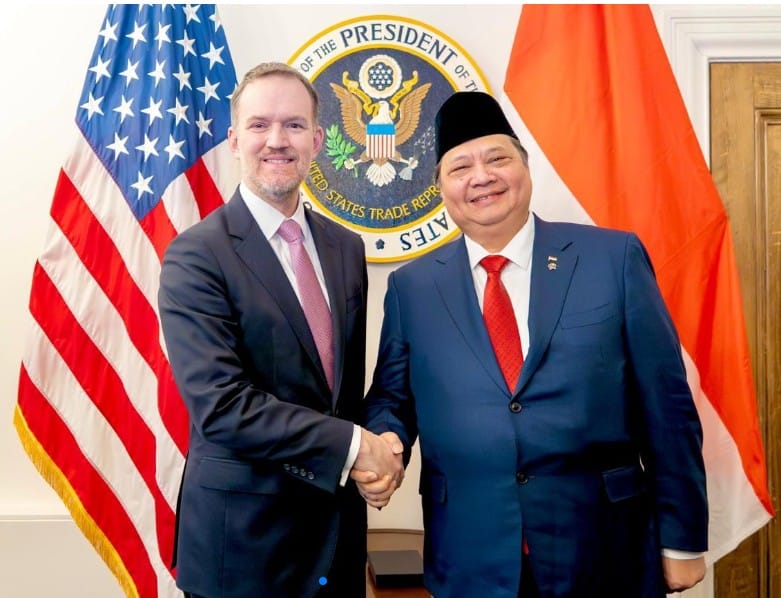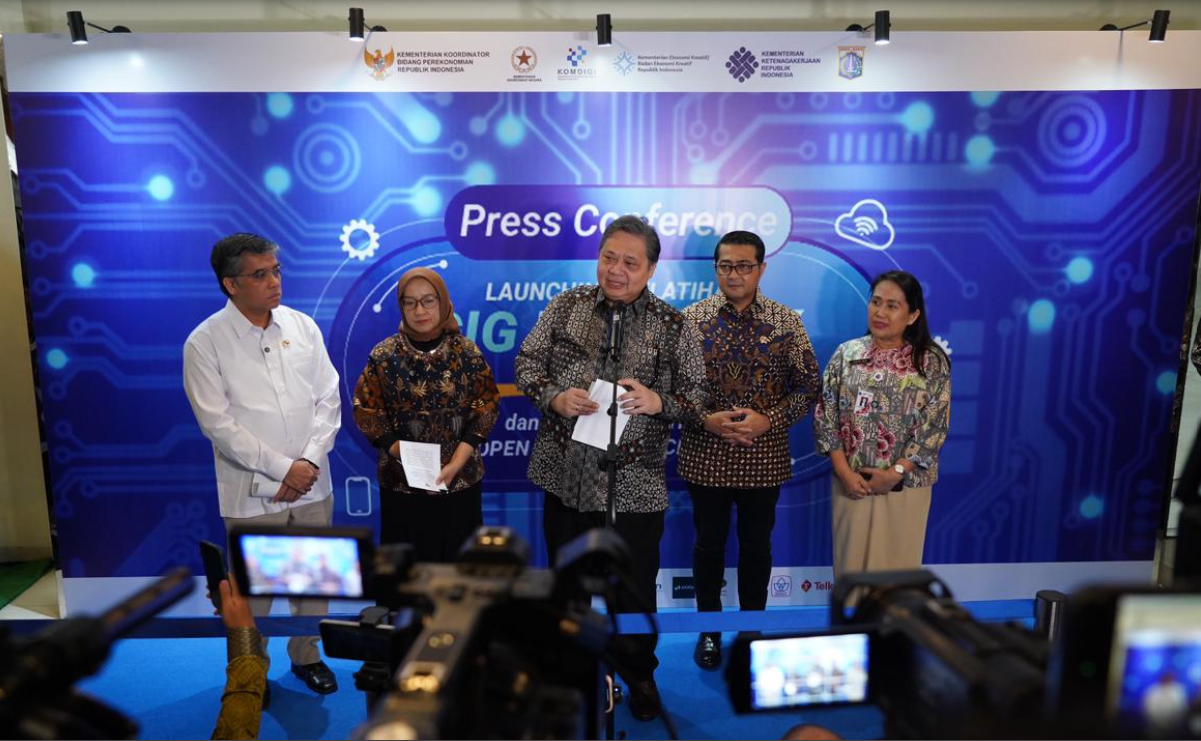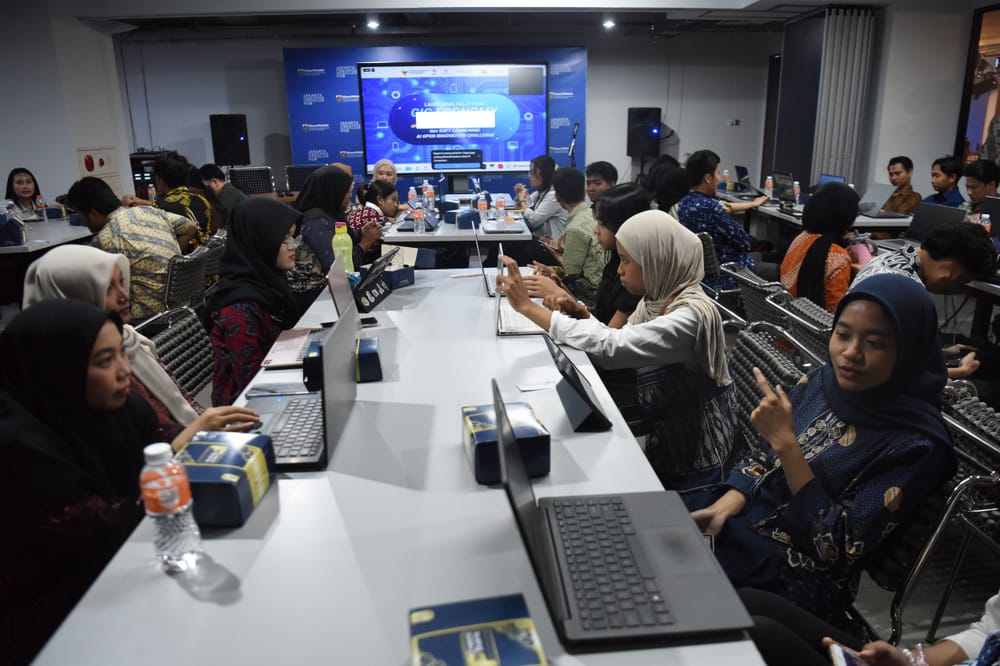The complexity of regulatory requirements between agencies often complicates the licensing process, slowing investment amid global economic pressures.
Deputy Chairman of the Indonesian Employers Association (APINDO) Sanny Iskandar hopes that the government's newly formed working group can resolve the main problems that are still often faced by business actors such as overlapping authority between agencies.
He pointed out that some basic licenses such as spatial planning and EIA are still piled up in various ministries and often lead to land claims between authorities.
"Do not let there suddenly be claims from other ministries, for example forestry or agriculture, that the area is included in protected rice fields or sustainable food agricultural areas. This should not happen," he told SUAR in Jakarta, Thursday (23/10/2025).
The government on Wednesday (22/10) established the Task Force for the Acceleration of Government Strategic Programs to coordinate and harmonize the implementation of various national priority programs so that they can be completed on time.
Coordinating Minister for Economic Affairs Airlangga Hartarto explained that the task force is a follow-up to President Prabowo Subianto's directive in a limited meeting on October 15 and was followed up through an inter-ministerial coordination meeting.
"The goal is to ensure that all cabinet program targets can be achieved and the benefits are truly felt by the community," he said.
Three Working Groups
Airlangga said there are three working groups that will work under the task force.
- Working Group I is tasked with accelerating the realization and implementation of the government's strategic program budget.
- Working Group II focuses on accelerating program implementation and resolving obstacles or debottlenecking.
- Meanwhile, Working Group III handles accelerating the completion of regulations that form the basis for program implementation and law enforcement.
The task force is composed of a number of ministers and heads of institutions across sectors, including Minister of Finance Purbaya Yudhi Sadewa, Minister of State Secretary Prasetyo Hadi, Minister of Tourism Widiyanti Putri Wardhana, Minister of UMKM Maman Abdurrahman, Minister of Communications and Digital Meutya Hafid, and other officials.
"The working group will work regularly and the results of the initial discussion will be followed up immediately," he said during a press conference at his office, Jakarta, Wednesday (22/10/2025).
The programs that the task force focuses on include the 8+4+5 economic package such as the new graduate apprenticeship program, housing subsidies, government-paid ITA 21, red and white kopdes, fishing villages, year-end discounts and the continuation of fiscal incentives.
In addition, the Working Group will follow up on non-tariff barriers, inter-commodity and sector issues, and other barriers that hinder efficiency.
Airlangga added that key programs such as the Free Nutritious Meal (MBG), Merah Putih Village Cooperative, and big-budget programs in various ministries are also prioritized for monitoring.
Minister of Finance Purbaya Yudhi Sadewa, who is included in Working Group II, explained that the existence of the task force is important to ensure that the government budget is absorbed on target and on time.
He said that the unabsorbed budget will be diverted to more useful sectors. Purbaya hopes that with this step, economic growth in the fourth quarter of 2025 can break 5.5% and increase faster next year.
Purbaya added that Pokja II will also directly accommodate complaints from business actors and hold cases every week to overcome real obstacles in the field.
"I hope that with a system like this, all obstacles in the government and the business world can gradually disappear," said Purbaya.
Purbaya expects the investment climate to improve significantly in the next six months as coordination between ministries improves.

Required
In response, Bank Permata Chief Economist Josua Pardede assessed that the division of tasks of the three Working Groups closed important gaps in the policy chain, ranging from budget absorption, program execution, to legal foundations.
According to him, this step is appropriate with the need to accelerate ministry and agency spending, capital expenditure, and infrastructure in the final quarter so that sharper coordination instruments are needed.
"I see the formation of three working groups as a necessary improvement effort, not just a temporary response, as long as they are given a clear mandate, escalation authority, and measurable performance targets," said Josua.
According to him, the Pokja II approach, which directly accommodates business complaints and holds periodic forums, can accelerate cross-ministerial coordination because it shortens communication lines and clarifies responsibilities.
However, its effectiveness depends on the governance architecture, such as complaint channels connected to existing licensing and supervision systems, standardized resolution times per issue, and escalation rights if it gets stuck in one agency.
Josua emphasized the need for rigorous and transparent monitoring through an auditable list of priority bottlenecks, responsible persons, weekly, and completion status.
In addition, the most immediate impact on economic growth will come from the acceleration of government spending and the smoothening of projects that are ready for execution. Josua explained that capital expenditure and infrastructure have a high multiplier on the construction, transportation, and services sectors, so the acceleration of procurement and term payments can directly boost household consumption.
"The combination of accelerated central spending and accelerated absorption of transfers to regions that are still on hold will be the most direct driver of gross domestic product on a quarterly basis," he said.
Sanny Iskandar continued that the formation of the three cross-ministerial working groups is a long-awaited step for businesses. According to him, inter-ministerial coordination is often the main source of delays in the licensing process and the implementation of economic policies.
"So far, bottlenecks most often occur in matters involving more than one ministry or institution, and that is what we hope can be resolved directly through the formation of the Pokja," he said.
According to Sanny, the effectiveness of the task force will depend on the government's ability to solve problems directly, not just preparing new regulations.
He cited a similar mechanism during the time of Coordinating Minister for the Economy Darmin Nasution, who managed to resolve obstacles between agencies through regular weekly meetings.
"If the Pokja can now be like that, problems are brought every week and immediately decided there, it will be much more effective than just waiting for rule changes," he said.
Sanny hopes that Pokja II can work in parallel with Pokja III so that problem solving can run simultaneously with regulatory reform. The final results expected by the business world, according to him, are not just reports or recommendations, but direct solutions to real obstacles in the field.
According to him, if each weekly meeting is able to produce concrete decisions, businesses will begin to feel a real improvement in the investment climate.






